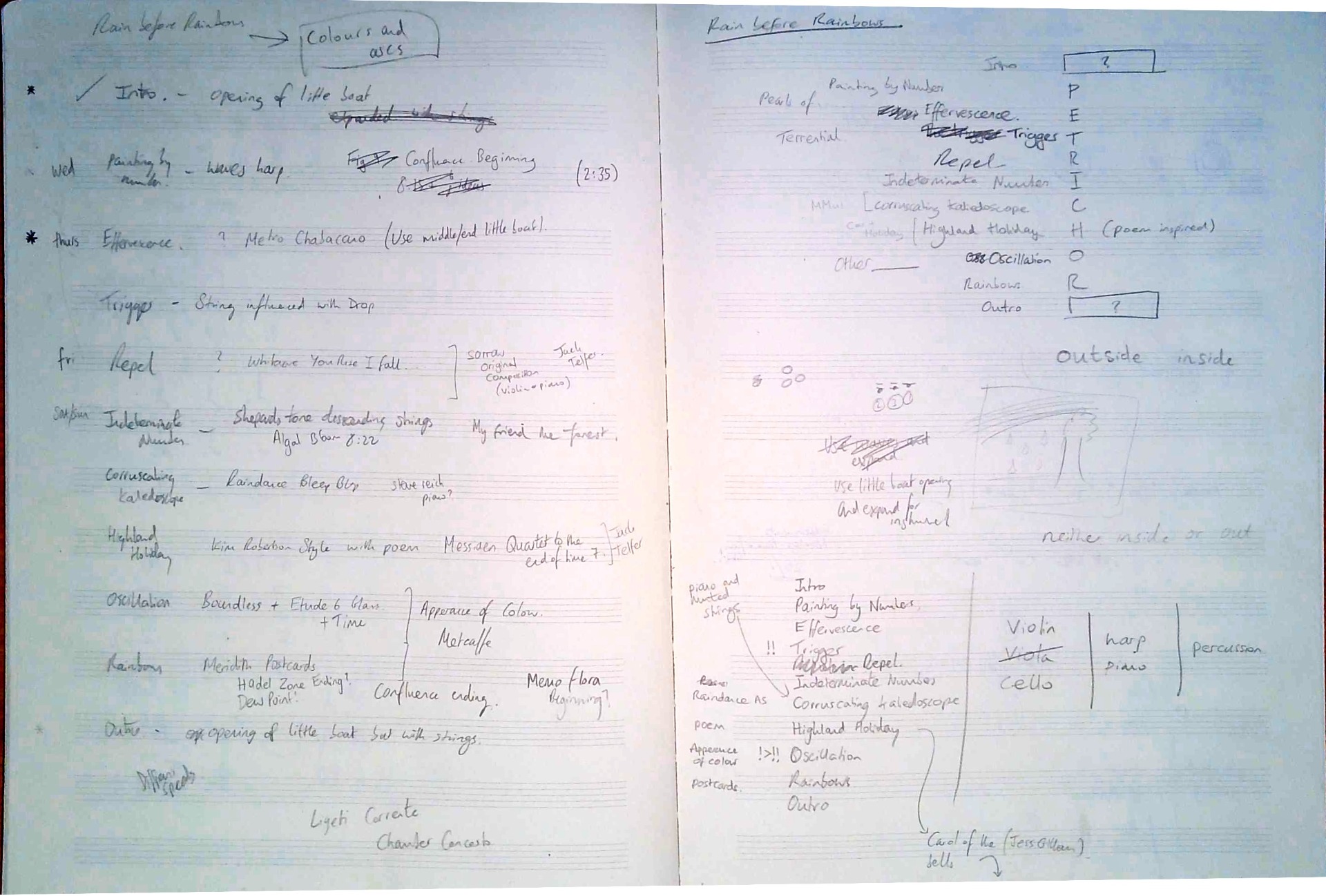Initial
Plans and Twists
So how do I finish off my final project with a bang? Of course - start my initial plans with a BHAG [5]. I decided early in the project plan to create...
A 50-minute album of entirely new classical, contemporary music composed by me. This would be composed for string quartet, harp and piano and be fully recorded both with audio and video with hired professional players [4]. This would lead to my first fully published album which I plan to promote on Spotify. It would also have meta elements [3] interwoven, such as calling the album 'PETRICHOR' where each letter is the beginning of the title of each piece. Oh, and it needs to have beautifully crafted album art too, itself meta.
It could have led to a beautiful creation - but there were two stumbling blocks to this idea. The first being the cost of the project. Looking at the rates from the Musician's Union and the recommended rates for hiring videographers and artists, the initial project idea would have cost around £3,000. As a creative putting his first step into the compositional world beyond university, to me the cost is worth it. I applied to various trusts but unfortunately none of them were able to help. In addition, composing 50 minutes of music was challenging to do on top of a full-time teaching job and developing my name as a conductor in the community.
It was around 3-4 months before the project deadline when I decided to take upon Sawyer's (2007) advice that keeping things 'open' for as long as possible is important to allow creativity to grow and allow as much adapting as possible to take place. [5]
I switched my plans to a reduced BHAG that showcases the three main areas of my practice that I have developed over my masters: conducting, classical composition and electronic re-composition. Although they wouldn't be entirely entwined to form one big project, the advantage of having three smaller projects would mean covering greater breadth. As a polyglot musician, I want to see myself as someone that can engage in multiple musical projects, and this is of particular importance as a young musician who is trying to promote himself to the world. The master's portfolio, despite what is mentioned in the assessment criteria, is not me directly wanting to contribute towards a specific field - but instead me showcasing the desire to become musically aware of fields that I'm less experienced in. This is what will benefit me in the long run as a young musician and is the approach I am taking for this portfolio.
So as Armstrong once said - 'screw the assessment grid'. For the first time in five years, I will be performing and composing off the grid, only processing and delivering material that will benefit my long-term career as a musician - showcasing my true musical polyglot skill set.
References:
Sawyer, Keith, 2007: Group Genius: the Creative Power of Collaboration. New York: Basic Books

